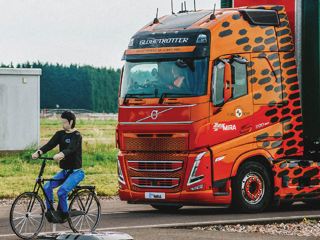Consolidation in fleet is a predicted outcome as costs come under greater scrutiny.
So, what are fleet decision-makers’ cost management priorities, how do they plan to bring them down for run-of-the-mill activities? Does this pressure on costs spell the end of perk cars.
A roundtable discussion at November’s Fleet200 Executive Club meeting considered these questions. Below is a summary of the conversation.
- When it comes to cost consolidation, the best place to start is with the top 10 expenses and look into the efficiency of contract usage as legacy contracts can be hanging over some fleet managers.
- Telemetry is one of the most effective cost management tools, reducing the need for hardware.
- Spot rental fees are continually monitored as these can incur higher than forecasted costs over longer periods of time.
- Communication with procurement is very important for fleet managers. Learnings can influence the procurement processes.
- Big data is overwhelming at the moment.
- There is an expectation for leasing companies to support fleets on cost management strategies.
- Multi-branded fleets do not have a standardised data delivery system which is impacting efficient data management. Solutions are required which involves data sharing between fleets, leasing companies and OEMs.
- As vehicles provide the data through connectivity, OEMs are better positioned to manage the data provision processes.
- Fuel costs are frequently monitored and managed as more fleets are changing fuel usage. There is a slow rise in use of CNG, hybrid and electric vehicles.
- Fleets are also looking for suitable infrastructure available to support the transition away from petrol/diesel powertrains to alternative fuel options.
- Third party logistic companies can be utilised with vehicles on downtime. However, sharing of vehicles creates insurance issues.
- Accident management proves a big expenditure.
- Risk exposure to RTC is an issue. Lack of repair units can mean hidden repair costs are harder to manage.
- Fleets aim to have the least amount of vehicles while pushing them to maximum productivity. However, there is a lack of quality drivers within the market. Driving is seen as secondary to the skillset of some employees with fleets looking for drivers to double as technicians and other manual skillsets.
- Minimise idling (excessive) which is controllable. Modern vehicles now turn themselves off when stationary which helps minimise fuel costs.
- Desirable cars losing appeal while BIK now dictates purchasing decisions. Taxation of perk cars moving people away from the company cars as PCH is proving more attractive and accessible to the private market.
- Companies guiding employees away from perk cars but there are some regional biases. 100% cash allowance is becoming more widespread amongst fleets as opting out of company cars is beneficial for tax purposes.
- People do not want to contribute to CO2 levels.
- Mobility allowance suited for most for business travel with HR/Finance responsible for managing this.
- Gamification is important for fuel, compliance and maintenance consolidation techniques.





















Login to comment
Comments
No comments have been made yet.